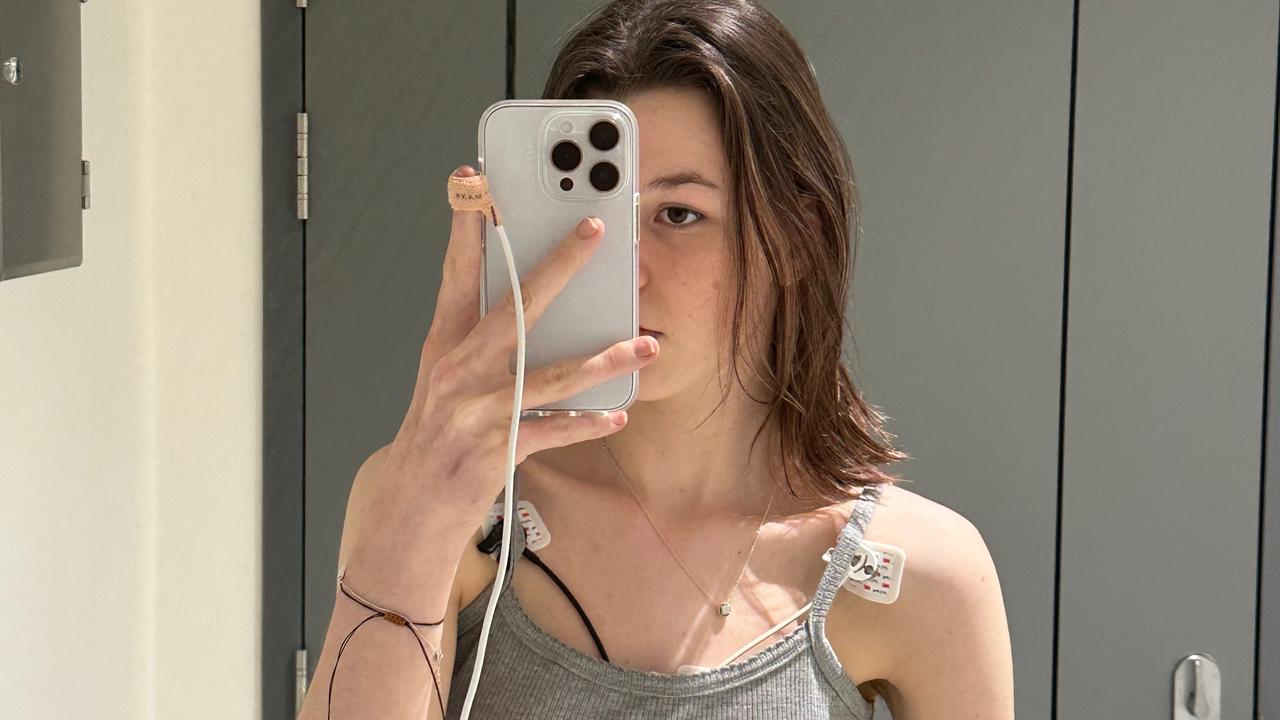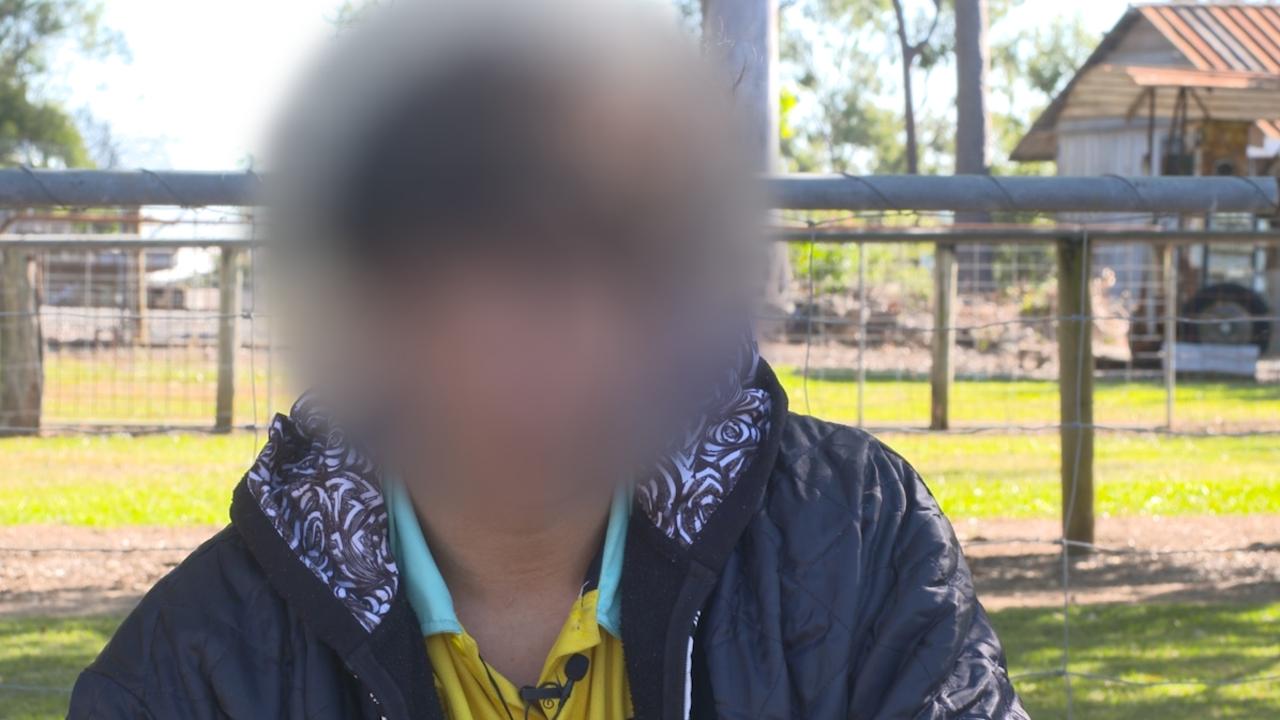Ban on Melbourne travellers entering SA as cluster grows
Nebulisers – the source of Victoria’s quarantine outbreak – have been banned in SA medi-hotels, as our borders once again close to people from Melbourne.
Coronavirus
Don't miss out on the headlines from Coronavirus. Followed categories will be added to My News.
The state’s Victorian border has been clamped down over fears about a COVID-19 outbreak at a Melbourne medi-hotel caused by a nebuliser, which have now also been banned in SA.
In a snap decision that caused chaos on the eve of Adelaide’s festival season, greater Melbourne residents were banned from entering SA from midnight. Hundreds of travellers raced home to SA to beat the border closure.
At least one person has died after three trucks crashed near the SA/Vic border among the confusion, closing the Bordertown checkpoint and creating a backlog of cars.
Authorities will review the strict border rules daily but returning SA residents and relocating travellers will be allowed to travel if they quarantine at home for 14 days.
The quick border closure was prompted by a medi-hotel outbreak in Victoria, which has now jumped to ten cases.
A nebuliser used in the room of an infected patient at Melbourne Airport’s Holiday Inn is likely to have vaporised coronavirus, allowing its airborne particles to travel into a corridor and other rooms, infecting workers at the medi-hotel.
SA Chief Public Health officer Professor Nicola Spurrier said this morning nebulisers would now be banned in all SA medi-hotels.
“We’ve just sent a letter out yesterday, and we have definitely now banned them (nebulisers),” Professor Spurrier told ABC 891.
“This is all a bit of a wake up call, so I think we’ll be seeing all the hotels around Australia doing this now, banning them.”
She said she was also considering options in airport security to pick up nebulisers on security scanners.
Professor Spurrier once again defended the quick border closure.
“We just need to now see whether the people who have had this disease over in Victoria who have been out in the community, whether there has been any significant transmission or spreading events.
“We should know that very soon … our plan is to not have that border in place for very long, but just for a period of time until we feel reassured that there’s not going to be more widespread transmission.”
Other than the border lockdown, there have been no other changes to restrictions in SA.
SA Health can grant approval for essential workers to cross the border. They would then be subject a series of COVID-19 tests, as was the case during previous closures.
A special SA Health panel will also consider other exemptions, including on compassionate or health grounds as well as those of Fringe performers and sports players.
Fringe and Adelaide Festival organisers, as well as the Crows AFLW team and Adelaide 36ers officials, were nervously watching developments that threatened to cause chaos with their plans.
Carolyn Aleksandrowicz made the dash home to Adelaide on Thursday morning, knowing she would have to quarantine for 14 days and work from home.
“I just wanted to come home before anything got any worse,” she said at the airport.
“I did not want to risk getting stuck over there.”
Ms Aleksandrowicz, who had spent the past week in Melbourne for work, said she was happy to comply with COVID-19 rules.
“Absolutely, it’s about doing the right thing,” she said.
Peter Chesworth was one of several passengers on the Qantas flight, which landed just after 9am, who said they were not required to quarantine for 14 days because they never left Melbourne Airport.
“I came from Canberra via Melbourne for 25 minutes in the airport,” Mr Chesworth said.
However, Mr Chesworth said that if required, he would happily do a fortnight’s self-isolation because it was in the “national interest”.
“I have full confidence in the way the governments and our country have managed this situation overall,” he said.
Aaron Mastrogiacomo had travelled from Sydney to Adelaide to visit family.
He was required to have a COVID test on arrival and quarantine until it returned a negative result.
“I’m fine with that,” Mr Mastrogiacomo said.
Naval Group’s French chief executive Pierre-Eric Pommellet has been granted special national security exemption to isolate in a suburban home after arriving on Sunday.
The Paris-based businessman is here for high-level talks and to inspect the Attack Class submarine projects. Naval Group’s parent company is paying for most costs including accommodation and security.
A Naval group spokesman declined to comment.
An SA Health spokeswoman said any application for exemption is reviewed by a special panel and any permits granted on a case-by-case basis.
“Under the current Cross Border Direction, a person can be directed to undertake quarantine at a suitable location other than a medi-hotel if they provide evidence of their role in national or state security or governance,” she said.
“A range of risk mitigation strategies, including additional testing and high levels of infection control, is in place for the individual and (SA Police) are providing 24/7 security monitoring.”
After a series of crisis talks between senior officers and health officials, Police Commissioner Grant Stevens flagged the border crackdown in response to the escalating cluster at a Holiday Inn medi-hotel at Melbourne Airport and fears of fresh community transmission of the mutant British virus strain.
Mr Stevens, who authorised new legal directions late last night as state COVID co-ordinator, said he was acutely mindful of the border timings.
A government directions panel of senior police and health officials will meet Thursday to discuss restrictions.
Prof Spurrier, who had earlier defended secrecy linked to an “old infection” last month at Adelaide’s tennis quarantine facility, said she was “very concerned” with the outbreak and the UK strain that is up to 70 per cent more infectious.
“Of course, we’re all very mindful of the Australian Open. However, from our perspective, we have to keep in mind the health, safety and wellbeing of South Australians,” she said.
“We also have the Fringe and Festival coming up and we want to most positively have that go ahead. I am being extra-cautious and there’s some reasons behind that, and one is this particular variant of concern.
“I’m hoping that this (border closure) will be able to be switched off as quickly as we have needed to switch it on.”
Adelaide Fringe director Heather Croall said it was closely monitoring the unfolding situation with Victorian borders.
“We are in contact with artists and venues and making them aware that they need to closely monitor the border closure advice,” Ms Croall said.
“Over 80 per cent of our program is made up of South Australian artists and many artists travelling from interstate for Fringe have already arrived. Many will travel tonight (Wednesday) and at this stage we are waiting to see how many artists may be affected by the current situation.”
Organisers of the Adelaide Festival said the border closure could prevent a number of artists from performing in its UKARIA classical music program and at its Summerhouse pop/rock venue.
Festival executive director Elaine Chia said it was still finalising which shows may be affected.
“What we do know is that the border closures have an instant effect on our box office with approximately one third of our audience coming from interstate,” Ms Chia said.
“So in many ways the logistics of refunding tickets and the subsequent financial fallout is the biggest challenge the Festival faces.”



